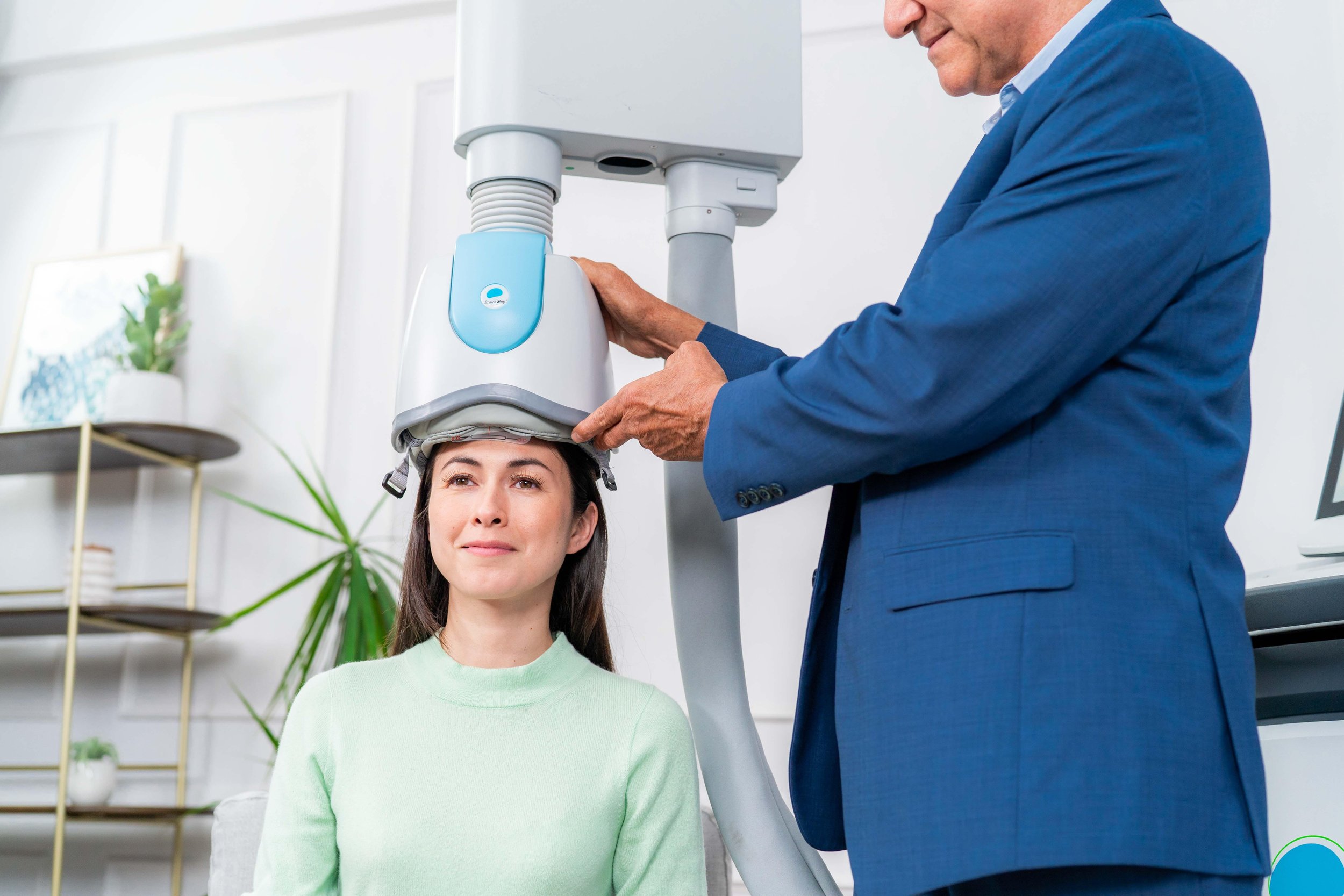During a TMS session, the patient sits comfortably while a physician positions a magnetic coil over their scalp. The coil generates repetitive magnetic pulses that penetrate the skull and activate the desired brain regions. Patients may feel a light tapping sensation and hear clicking sounds from the device, but the procedure is entirely painless and requires no sedation or anesthesia.
-
In terms of efficacy, research shows promising results – particularly for depression. According to the National Institutes of Health, around 40% of patients with treatment-resistant depression achieve full remission after a full course of TMS therapy. And 60-70% report a significantly noticeable improvement in their symptoms. While this may seem low to some, it's significant for those who haven't responded to other treatments, as only about 60% of depressed patients improve with typical therapies like medication and psychotherapy.
-
There are no known long-term negative side effects. TMS is generally well-tolerated, with few mild side effects reported. The most common are mild headaches, scalp discomfort, lightheadedness, and facial twitching during the procedure. These typically diminish as treatment progresses or can be alleviated by adjusting the device settings.
-
Other Brain Stimulation Therapies TMS is part of a broader class of brain stimulation treatments that includes electroconvulsive therapy (ECT), deep brain stimulation (DBS), magnetic seizure therapy (MST), Low-Intensity focused Ultrasound (LIFU), and vagus nerve stimulation (VNS). While the methods differ, they all aim to modulate brain activity to alleviate symptoms.
If you or a loved one has struggled with conventional treatments, TMS may offer a breakthrough solution. This innovative therapy harnesses the power of magnetic stimulation to revitalize brain function and restore mental well-being. Contact us today to explore if TMS is right for you.
Transcranial Magnetic Stimulation (TMS) Therapy: An Innovative Treatment for Mental Health
What is TMS Therapy? Transcranial Magnetic Stimulation (TMS) is a non-invasive, FDA-approved therapy that uses magnetic pulses to stimulate specific areas of the brain. It's designed to modulate neural activity and communication in targeted regions, effectively "rebooting" brain function.
-
At Westside NeuroTherapeutics we specialize in treatment-resistant depression. That means when anti-depressant medication is not effective enough and other therapies also don’t alleviate the symptoms of depression.
Soon, we hope to expand our clinic to also treat OCD, ADHD, and Substance Use Disorder.
-
Unlike medications that alter brain chemistry, TMS directly activates or inhibits neural activity in specific circuits. This targeted stimulation aims to shift brain patterns from those associated with disorders like depression to healthier, more balanced states. It also promotes neuroplasticity, the brain's ability to rewire and form new connections over time, which is thought to contribute to symptom improvement.
-
A typical TMS treatment plan involves multiple sessions, for 4-6 weeks. Each session lasts between 20-25 minutes, and patients can drive themselves and resume normal activities immediately afterward.
Before the first session, our physicians will calibrate the appropriate magnetic energy level for each patient's needs, as personalization is at the core of our treatments. Patients must also remove any magnetic objects like jewelry or wallets, hair clips, and the like.

